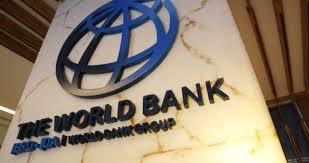The World Bank has reported that Nigerians with accounts in deposit money banks (DMBs), microfinance banks (MFBs) and other financial institutions (OFiS), including mobile money service providers, rose from 16 percent in 2020 to 45 percent by the end of 2021.
The Washington D.C-based multilateral financial institution made this disclosure in its just published report titled ‘The Global Findex Database 2021: Financial Inclusion, Digital Payments, and Resilience in the Age of COVID-19’.
The report also indicated that in Nigeria, active bank accounts increased to 111.5 million as COVID-19 pandemic triggered account opening by millions of Nigerians during the period.
According to the bank’s report findings, the overall account ownership rate in developing economies grew by 30 percent, from 42 percent in 2011 to 71 percent last year, representing a growth of more than 70 percent.
The World Bank further reported that global account ownership increased by 50 percent from 51 percent in 2011 to 76 percent in 2021 while Nigeria’s account ownership increased from 30 percent to 45 percent during the review period covered by the report..
The report further clarified: “Individual economies saw different rates of growth over the past decade. Between 2011 and 2021, economies such as Peru, South Africa, and Uganda drove up the average with account ownership increases of 25 percentage points or more.
“Other economies saw much smaller increases over longer periods. Pakistan, for example, grew by just 10 percentage points over the past decade, from 10 per cent in 2011 to 21 per cent in 2021.
“The Arab Republic of Egypt and Nigeria increased ownership by 18 percentage points and 16 percentage points, respectively—from 10 per cent to 27 per cent in Egypt, and from 30 per cent to 45 per cent in Nigeria”, the bank added.
It noted that having an account remained a key indicator of financial inclusion and opens the door for both men and women to use financial services in a way that promotes growth.
According to the report, owners of accounts, whether they are with a bank or a regulated organization like a credit union, microfinance institution, or mobile money service provider, were able to store, send, and receive money, allowing them to invest in their health, their children’s education, and their businesses.
The Breton Woods institution attributed the growth in account ownership in Nigeria and other Sub-Saharan African nations to the adoption of mobile money.
It stated: “In Sub-Saharan Africa in 2021, 55 per cent of adults had an account, including 33 per cent of adults who had a mobile money account—the largest share of any region in the world and more than three times larger than the 10% global average of mobile money account ownership.”






